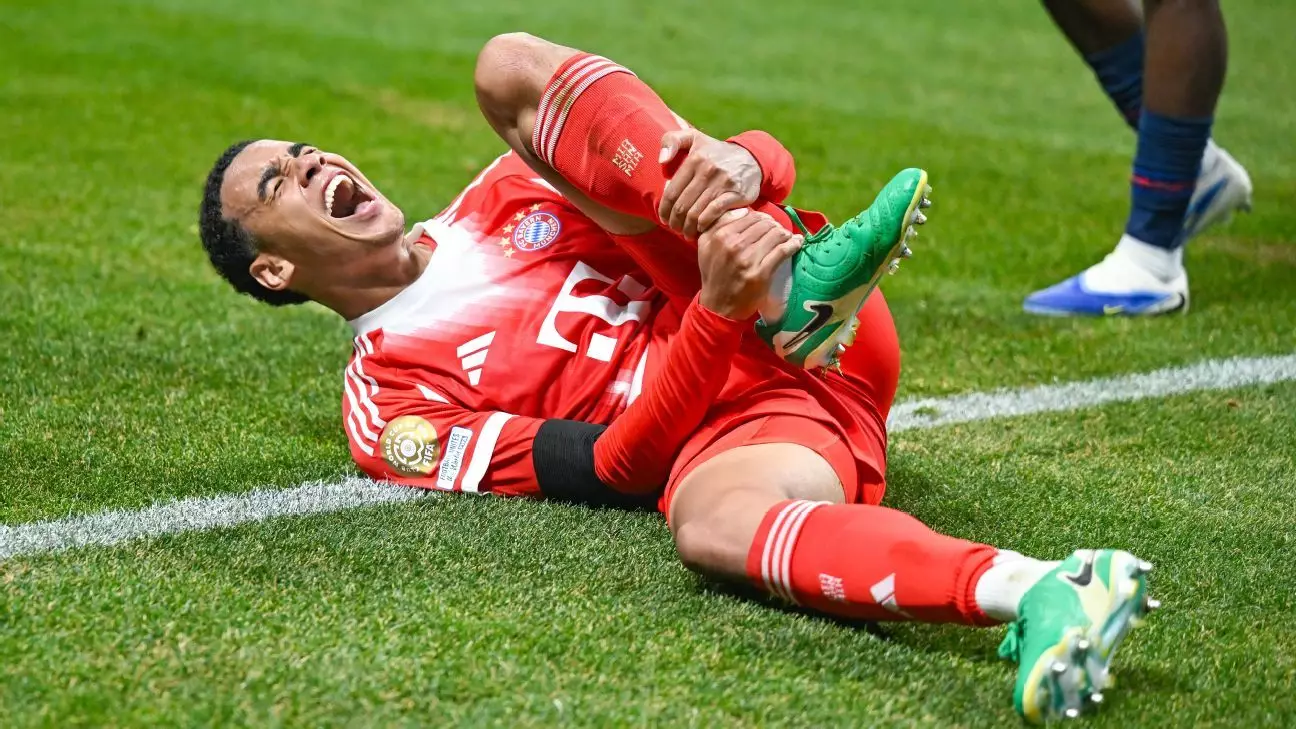The news of Jamal Musiala’s severe leg injury during the Club World Cup resonates far beyond Bayern Munich’s immediate circle. It underscores the brutal, often unpredictable nature of football, where a single collision can alter a player’s trajectory dramatically. This incident is a stark reminder that football, despite its glamour and commercialism, remains a high-risk sport where physicality can result in devastating consequences. Musiala’s injury not only halts his promising career momentum but also reveals the fragility that underpins athletic excellence. His recent comeback from previous injuries, only to face another setback, emphasizes the relentless physical toll top-level football exerts on athletes. It forces the football community to reflect on the physical and mental resilience required to sustain a career at such a demanding level.
The Psychological Toll and the Power of Support
The mental impact of such an injury is often overlooked amidst the focus on physical recovery. Musiala, a young star, faces not just a lengthy rehab but also the challenge of maintaining confidence and motivation during recovery. Bayern’s pledge to support him is commendable, yet the true test lies in how the club and wider football fraternity foster an environment that promotes mental health alongside physical rehabilitation. The injury also sparks discussions around the emotional toll on teammates, fans, and even opponents who witness such setbacks. It is a stark reminder that behind every athlete’s impressive performance is a complex web of psychological strength, resilience, and support networks. If football teams want to truly invest in their players, prioritizing mental well-being must become as paramount as physical health management.
Dissecting the Challenge: Was It Necessary or Reckless?
The controversy surrounding Gianluigi Donnarumma’s challenge reveals deeper issues about safety and sportsmanship in modern football. The goalkeeper’s aggressive move, which resulted in Musiala’s injury, raises questions about the fine line between competitive spirit and reckless play. Manuel Neuer’s pointed critique suggests frustration and concern, emphasizing that such risks should be avoidable. This incident magnifies the importance of players and officials prioritizing safety over aggressive tactics. Football governing bodies must revisit rules and educate players about responsible gameplay to prevent similar injuries in the future. There is also an ethical debate about whether certain tackles or challenges are justified in the heat of the moment or should be penalized to protect athletes’ careers and well-being.
Musiala’s injury challenges us to rethink what truly matters in football. It’s a stark reminder that the sport’s essence is rooted in skill, fairness, and respect. As the game evolves with faster play and more physicality, it’s imperative that stakeholders prioritize the health and safety of players over the desire for victoire at any cost. The hope is that this painful episode sparks a meaningful change—one that ensures young talents like Musiala can thrive without fear of such devastating setbacks. The resilience of the player, the support from his club, and the integrity of the sport itself must ultimately steer the future conversations about safety, respect, and human value within football.

